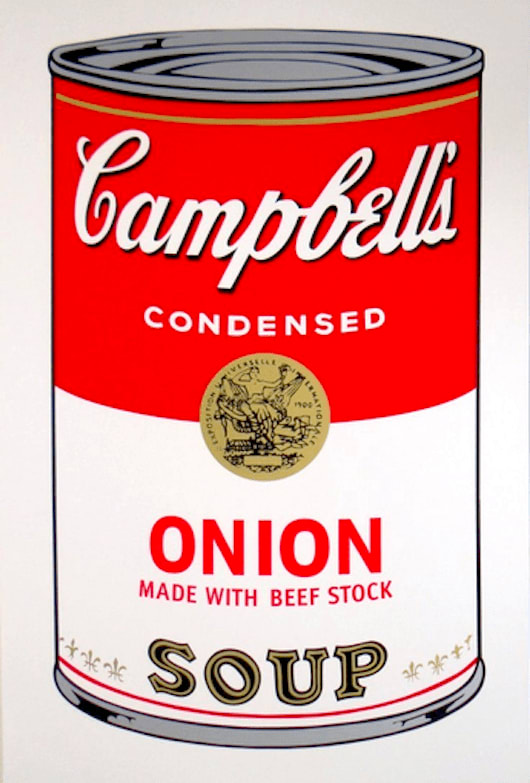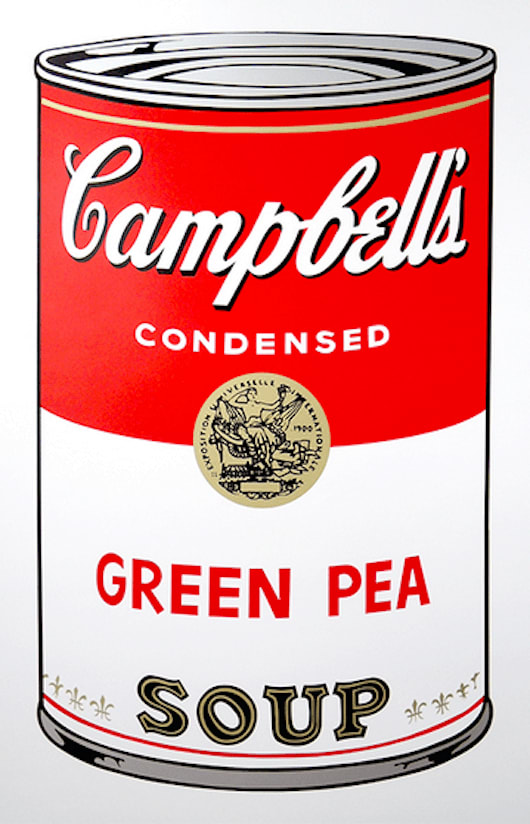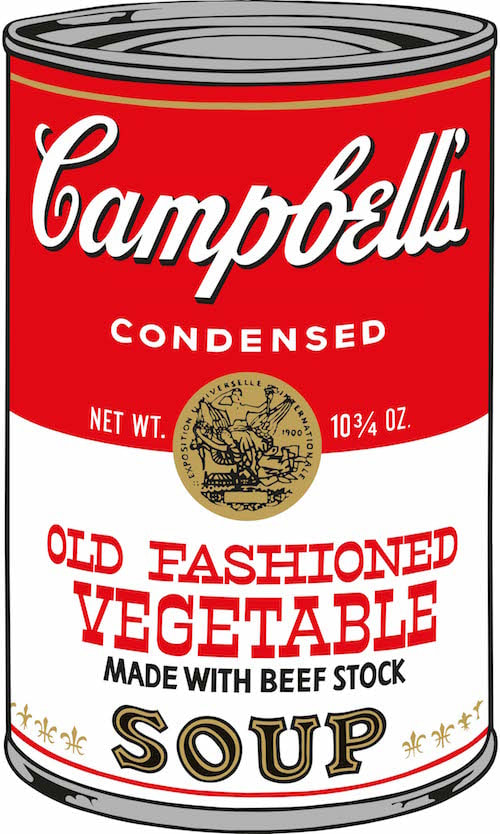Andy Warhol’s Soup Cans series is one of the most iconic representations of Pop Art, embodying a transformation of the ordinary into the extraordinary. Each soup can invites viewers to rethink the nature of art, consumerism, and the American experience. By elevating Campbell’s soup cans to the status of fine art, Warhol not only broke down the barriers between high art and everyday objects but also captured the essence of a post-war America driven by consumer goods, convenience, and the comforts of mass-produced products.
Tomato Soup is the quintessential Warhol image, embodying both the artist's personal taste and his broader artistic vision. Warhol himself often said that Campbell’s Tomato Soup was a staple in his own diet, a simple, familiar comfort food that had been a part of his life since childhood. This particular can resonates with viewers due to its universal recognition and association with warmth and nostalgia. In Warhol’s hands, the Tomato Soup can becomes more than a meal; it becomes a symbol of post-war prosperity and the expanding middle class, a perfect encapsulation of everyday America.
Less common in American households, Onion Soup and Scotch Broth Soup showcase Warhol’s encyclopedic approach to the Campbell’s brand. While these flavors may not have been pantry staples for the average American, their inclusion highlights the extent of Campbell’s reach and their strategy of offering a wide variety of products to meet diverse tastes. Onion Soup and Scotch Broth carry subtle hints of European culinary traditions, nodding to America’s immigrant heritage and the blending of cultures that defined much of mid-century America. Warhol’s choice to include them underscores his interest in cataloging the entirety of the Campbell’s brand, reflecting the Pop Art movement’s fascination with seriality and repetition.
Beyond the surface, Warhol’s Soup Cans series serves as a powerful commentary on consumerism and the homogenization of American life. The repetition of nearly identical cans, each with only slight variations, mirrors the way mass production flattens the uniqueness of individual products, experiences, and, by extension, individuals themselves. Warhol's Soup Cans suggest that in a consumer society, our identities can often feel as interchangeable as the items on a grocery store shelf. He invites viewers to contemplate the ways in which consumer goods shape our daily lives and identities, often in ways we scarcely notice.
In the broader context of Pop Art, the Soup Cans series was revolutionary for its unorthodox subject matter and its embrace of commercial aesthetics. Warhol’s decision to paint products rather than traditional subjects like landscapes or portraits challenged contemporary views on art, pushing against the boundaries of what could be considered worthy of artistic representation. His use of bright, flat colors and bold lines mimicked the advertising techniques of the time, making his paintings as visually striking as the products they depicted. Warhol’s work serves as both a critique and a celebration of capitalism, blurring the line between artist and advertiser, artwork and commodity.
Warhol’s Soup Cans hold a lasting cultural significance, capturing the essence of an era when American identity was increasingly defined by consumption and brand loyalty. The Campbell’s soup can, an object of both utility and sentimentality, became a canvas on which Warhol could project his reflections on society. The Soup Cans remind us that art can be found in the most unexpected places, that even the humble can of soup carries with it a story about who we are and what we value. Warhol’s choice to elevate these cans to the status of fine art was a profound statement, one that continues to resonate with audiences today, underscoring the enduring impact of Pop Art and its ability to mirror the world around us.
In exploring these various flavors, Warhol not only painted a portrait of mid-century America but also set the stage for future artists to continue examining and reimagining the everyday objects that define our lives. The Soup Cans series is a testament to Warhol’s vision and a reminder that even the simplest objects can hold complex cultural significance, shaping how we see the world and ourselves.
Discover original andy warhol art for sale at guy hepner and contact info@guyhepner.com for latest availabilties. Looking to sell? Speak to our team to find out how to sell andy warhol prints.







